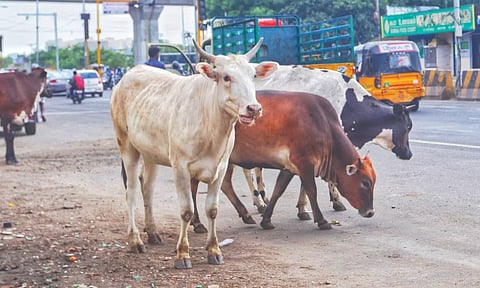

CHENNAI: The increase in temperature level and any climate change will have adverse effect on the milch cattle and its production, caution veterinarians and livestock experts. The situation, if not handled right, might affect milk production in the State, opine industry sources.
“One of the main reasons for the decrease in milk production is due to water scarcity and shortage of green grass for grazing. There is a vast area available throughout India, which could be provided for grazing, but that is not used by the government,” said Prof D Baskaran, HoD-Dairy Science, Madras Veterinary College.
“During summer the exotic cattle are affected more than the indigenous ones. Exotic ones are more milk yielders as they produce around 10-15 litres per day as opposed to indigenous breeds that produce only 1.5- 2 litres/day,” he added.
“Also, in summer, the cattle must be provided a shelter with a ventilator. Shelters must have coconut roofs. Similar to humans, they too face heat-related issues when they are tied up in the middle of the paddy field and no shades are given. Avoid taking them out during noon hours. Take them out only from 8-10 am and after 4 pm. The cattle must consume sufficient water – 86.5% of consumption must be water,” said Dr S Bharat Jothi, a veterinarian.
Sunraj N, a dairy farmer who runs a farm with 60 cattle in Tiruvallur, said, “Milk production of cows depends on how we feed them during summer. We’re growing CO5 grass that’s maintained well during summer to prevent shortage. Rice water is also provided to the cattle as it’s healthy for them.”